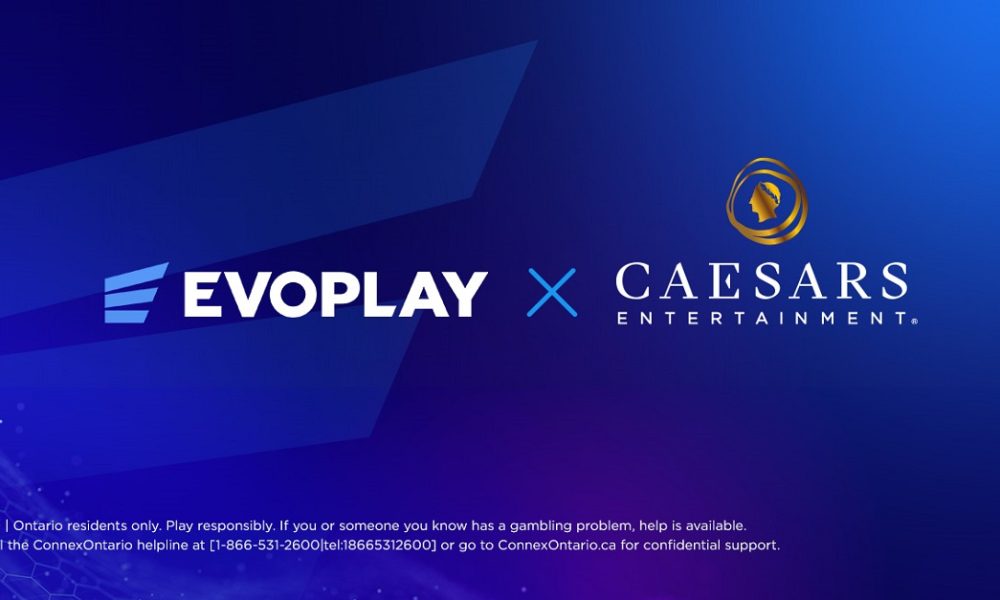Canada
PASPA – Five years on – did any initial predictions come true or not?
With the fifth anniversary of the PASPA repeal on May 14th, we caught up with Compliable’s Chief Regulatory Officer, Justin Stempeck, who examines what was predicted in May 2018 and how accurate those initial guesses have proved to be.
“National regulation on sports betting”
When PASPA was overturned, the Supreme Court explicitly placed the power to regulate gaming in the hands of the states. It would be extraordinarily unlikely for our highest court to conclude that betting is not a federal issue, then have legislators introduce another national law, yet there were calls for this strategy from numerous stakeholders in 2018.
While the different approaches of each state were less than ideal, the industry was able to adapt and continue to advance in each new jurisdiction that has legalized.
Despite the ‘patchwork quilt’ aspect of regulation there are far more commonalities than differences. Regulators have made some efforts to avoid reinventing the wheel, but it would be great to see wider momentum. As a former regulator, I understand that each state has its own unique pressures and competing interests to juggle, but ultimately, a push towards uniformity will be a success for everyone in the absence of national regulation of the sector.
“National Collegiate Athletic Association’s sports integrity concerns”
Betting on collegiate sports has always occurred but it took place offshore and in illegal markets before the repeal of PASPA. The expansion of sports betting includes official regulation, taxation and supervision of the activity, which can only be a good thing. A number of regulated entities are now actively ensuring there are no discrepancies in game performance and there is a vested interest in guaranteeing that everything is above board. With some states today allowing betting on collegiate sports, people have become more comfortable with the idea.
The NCAA continues to officially oppose sports betting, yet appointed former Massachusetts governor, Charlie Baker as its president this past March. Notably, Governor Baker was a proponent of legalized sports betting in Massachusetts and ultimately signed it into law. The combination of a sports betting friendly president and a lack of major integrity scandals since legalization may shift their official stance in the future.
“Increased risk of match-fixing”
As of yet, there have been no high-profile match-fixing scandals despite the existential threat and this is in large a testament to the leagues’ enforcement of its own integrity as well as the plethora of third-party monitoring services now available.
A match-fixing scandal would have a significant impact on the industry as a lot of bettors would likely be lost due to a lack of trust. With sports, the thrill and excitement lie in the possibility that anything can happen and underdogs can become winners, if that narrative is shown to be fiction, the reputational damage would be sizeable. The ripple effect of such an event would carry on for years as critics of sports betting could use a match-fixing scandal to argue against legalization.
“Responsible Gambling – a negative impact”
The expansion of betting and gaming is naturally going to lead to an increase in problem gaming. There is still a lot of data to collect and synthesize, particularly given that many regulated jurisdictions have only been up and running between one and three years.
Operators have started to take a focused view of responsible gaming and have dedicated internal teams, as well as funding research. Failure here is another existential threat to the industry and a big scandal could do a huge amount of damage to a nascent industry.
I see responsible gambling being a cutting-edge issue as it is so critically important so it will only become more and more relevant moving forward.
“32 states to enact sports-gambling legislation by the end of 2023”
This was a very accurate prediction as gambling is now legal in 35 states. Expansion has slowed down a bit compared with the great momentum we saw between 2018-2020, but we will see additional states roll out legislation in the short term. Some states will never legalize of course, but eventually, we will have 80-90% of the US allowing sports betting.
California, Texas and Florida are the three remaining big states that everyone is now eagerly waiting for, offering huge potential due to their respective market size.
“International betting operators prohibited free access to the US”
No rules or regulations have been implemented to specifically keep out remote operators or benefit local ones except those operating in black or grey markets. The US has been an open market for operators from Europe, but I have spoken to many companies who are finding the different rules across the regulated states extremely confusing and resource draining. The US is the equivalent of 50 countries and there is very little federal law that applies to gambling, making it difficult to operate if you are not a company with a dedicated compliance team or efficient tools to fill that need.
Canada
absolutebet Secures AGCO Registration as an Internet Gaming Operator in Ontario

Internet Gaming Operator by the Alcohol and Gaming Commission of Ontario (AGCO).
This significant milestone authorizes absolutebet to offer regulated iGaming services in Ontario’s legal market under the oversight of AGCO and iGaming Ontario (iGO).
The registration marks a key step in absolutebet’s mission to bring a trusted, responsible, and innovative online casino experience to Ontario players. absolutebet is committed to operating with integrity and transparency, meeting all provincial standards for player protection, responsible gambling, anti-money laundering, and game integrity.
“Securing AGCO registration is more than a milestone—it’s the start of absolutebet’s journey in one of the most exciting regulated markets in the world,” said Chen Truman, Founder of absolutebet. “We are building a brand that will grow with the Ontario community and set the stage for future expansion.”
On the regulatory milestone, Krisztina Kalla, Legal & Regulatory Compliance Advisor of absolutebet, commented: “I’m incredibly proud to see all the hard work behind this license pay off. Securing AGCO registration has taken months of preparation and close collaboration with regulators and partners. I am very happy to see the result of that work, and even more excited as we move into the launch phase and open up the absolutebet community to Ontario players in a fun and responsible way.”
Ontario is recognized as one of the most competitive and fast-growing regulated iGaming markets in North America. With AGCO registration secured, absolutebet will move forward with the final stages of its iGO onboarding process in preparation for launch.
The post absolutebet Secures AGCO Registration as an Internet Gaming Operator in Ontario appeared first on Gaming and Gambling Industry in the Americas.
Alex Malchenko Head of Sales at Evoplay
Evoplay strengthens Ontario presence in partnership with Caesars Entertainment

Evoplay, the award-winning game development studio, has partnered with Caesars Entertainment to expand its footprint in the Canadian market, following its initial entry earlier this year. The partnership integrates 20 of the studio’s top-performing titles onto Caesars Palace Online Casino, Horseshoe Online Casino and Caesars Sportsbook & Casino in Ontario, including fan-favourites such as Hot Triple Sevens, Triple Chili, and The Greatest Catch Bonus Buy.
Having announced its official entrance into Ontario in March, the collaboration with Caesars marks a significant step in Evoplay’s local strategy. Further standout releases, such as Inner Fire Bonus Buy and Hot Volcano, also launched as part of the initial package, with additional player favourites, including Fruit Nova and Ice Mania.
The collaboration underlines Evoplay’s commitment to working with leading operators to deliver high-quality content tailored to regional audiences.
Alex Malchenko, Head of Sales at Evoplay, said: “Launching with Caesars in Ontario marks a key milestone in our North American strategy.
“It reflects both the strength of our portfolio and our commitment to providing innovative, high-performing content to operators of the highest caliber.”
Ricardo Cornejo Rivas, Vice President of Online Gaming at Caesars Digital, said: “Evoplay brings a fresh and dynamic approach to online gaming, which we’re excited to offer to our players in Ontario. This portfolio of standout titles adds to our growing content library and furthering our ongoing goal of delivering top-tier entertainment experiences to our players.”
The post Evoplay strengthens Ontario presence in partnership with Caesars Entertainment appeared first on Gaming and Gambling Industry in the Americas.
Canada
iGaming Ontario Appoints Joseph Hillier as its New President and CEO

The iGaming Ontario Board of Directors has announced Joseph Hillier as the organization’s new President and Chief Executive Officer, effective September 8, 2025. Joseph’s depth in the Ontario igaming market combined with successful public and private sector careers make him the ideal President and CEO at this critical point in iGaming Ontario’s growth.
Joseph was most recently Chief Strategy Officer and Corporate Secretary at the Alcohol and Gaming Commission of Ontario (AGCO), where he delivered significant strategic and regulatory initiatives across the province’s alcohol, cannabis, gaming, and horse racing sectors. Prior to the AGCO, he served as Chief of Staff to Ontario Attorney General Hon. Doug Downey and led the development, launch and implementation of Canada’s first private sector-driven igaming market and the creation of iGaming Ontario. Joseph also spent more than a decade working in the financial and legal services sectors.
The Board expressed its sincere thanks to David Smith for serving as Interim President and Chief Executive Officer since Martha Otton’s retirement.
The post iGaming Ontario Appoints Joseph Hillier as its New President and CEO appeared first on Gaming and Gambling Industry in the Americas.
-

 gaming3 years ago
gaming3 years agoODIN by 4Players: Immersive, state-of-the-art in-game audio launches into the next generation of gaming
-
EEG iGaming Directory8 years ago
iSoftBet continues to grow with new release Forest Mania
-
News7 years ago
Softbroke collaborates with Asia Live Tech for the expansion of the service line in the igaming market
-
News7 years ago
Super Bowl LIII: NFL Fans Can Bet on the #1 Sportsbook Review Site Betting-Super-Bowl.com, Providing Free Unbiased and Trusted News, Picks and Predictions
-
iGaming Industry8 years ago
Rick Meitzler appointed to the Indian Gaming Magazine Advisory Board for 2018
-
News7 years ago
REVEALED: Top eSports players set to earn $3.2 million in 2019
-
iGaming Industry8 years ago
French Senator raises Loot Boxes to France’s Gambling Regulator
-
News7 years ago
Exclusive Interview with Miklos Handa (Founder of the email marketing solutions, “MailMike.net”), speaker at Vienna International Gaming Expo 2018









